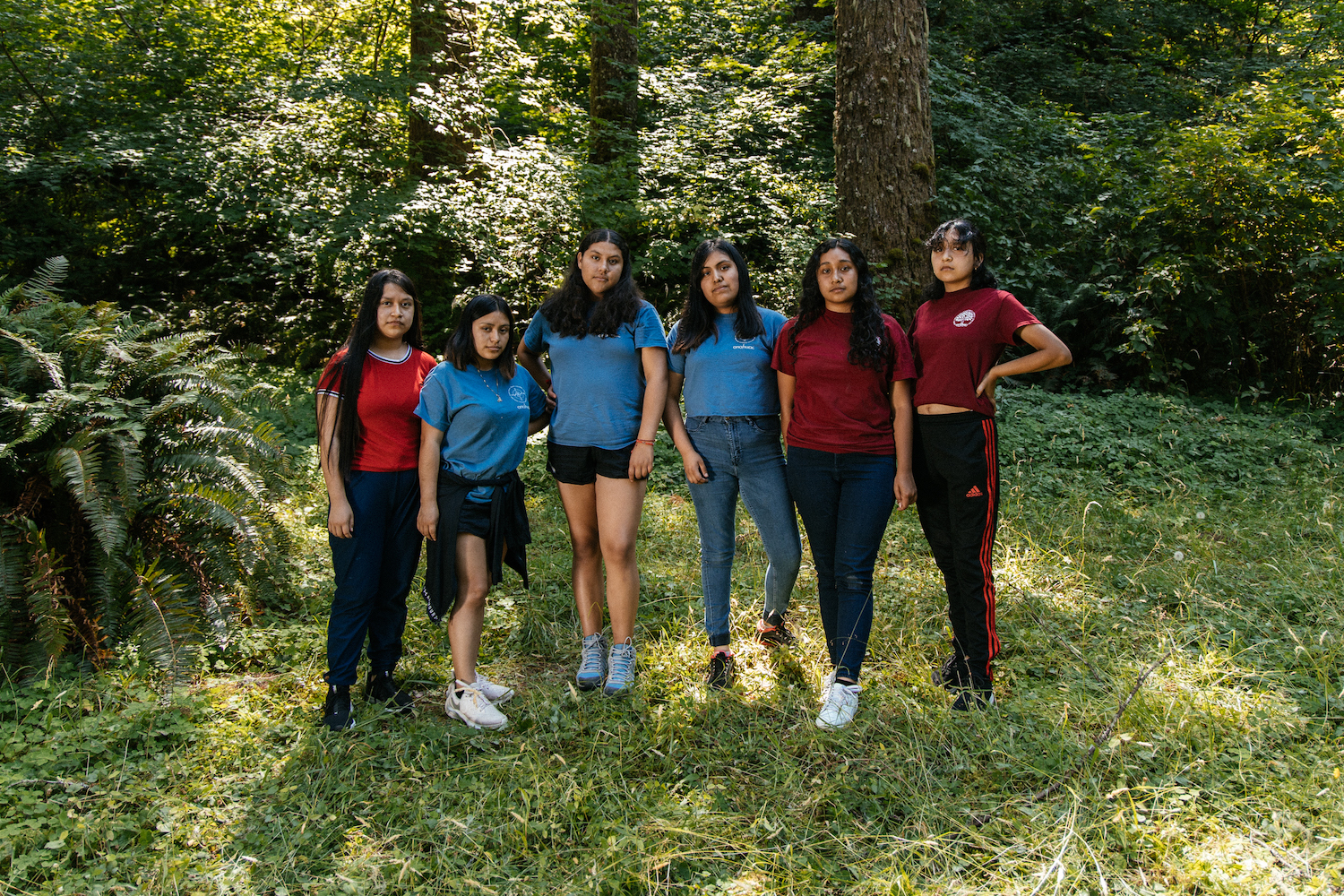As the circle begins to form, the two of us join in. We are Daisy Santana, TURNO Program Manager, and Sofia Baum, Anahuac Program Support Specialist, at Capaces Leadership Institute in Woodburn, Oregon. Both of us joined the Capaces team this past spring, and at the same time joined a movement that has lived longer than either of us have been alive.
Capaces just celebrated its tenth anniversary this summer, a milestone for our work as part of Oregon’s Immigrant and Farmworker Rights Movement, which began in 1977. Our organization grew out of a collective need and effort to take care of one another, focus on wellness, cultivate our leadership potential, and see each other as whole people. Our gente—our people—are on the frontlines of the movement, and burnout is a risk in any shared fight for equity. Capaces is a place where our gente—Latinx and Indigenous ethnic groups from Mexico, Central America, and South America who now live and work in Oregon’s Willamette Valley—can come to be in community with one another, support each other’s leadership, preserve and practice our traditions, and celebrate our strides over delicious food and storytelling.
Capaces makes a special point to support the well-being of youth and families. The Talento Universitario Regresando a Nuestros Orígenes (TURNO) program, or University Talent Returning to Our Origins, creates a path for high school-aged Latinx, immigrant, Indigenous, and farmworker youth to embrace and prepare for long-term leadership through self-discovery, community-based service, support for academic success, and workforce development. The Anahuac program offers our youth and community the opportunity to learn and practice traditional ways of life in agriculture, culinary and cultural arts, wellness, and Indigenous languages such as Mixteco and Zapoteco. Our mission is to support our community to reclaim our ancestral culture, traditions, knowledge, and values, restoring our sacred relationships with all life and la Madre Tierra for generations to come.
After a very challenging year during which our community faced a pandemic, wildfires, an ice storm, anti-immigrant hatred, breakdowns in democracy, and a transition to a new presidential administration, this past summer was an important time for our community to reconnect, ground ourselves in our ancestral knowledge, and remember and celebrate who we are. Our partners at the Salem-Keizer Coalition for Equality (SKCE) approached the TURNO and Anahuac programs to host youth and families from the Willamette Valley for a series of weekly talleres de verano, or summer workshops, that reclaim our ancestral practices of reciprocity through the exchange of stories, knowledge, and traditions.
At the beginning of each taller, we gathered with the youth and families in a circle, a sacred symbol for Indigenous communities all over the world. Everything is circular: life and death, seasons, daylight to nightfall, and so on. We embody the imagery of a spiral until we come to our center, the essence of who we truly are. Together, we take this time to parar el mitote, or silence the mitote—an act of calming the noise or fog in our minds to fully experience the reality of how interconnected we are with all life when we live from our hearts. Once in this state of humbled being, we are aware of our inner selves and our participation in this profound coexistence with one another and all life.
















